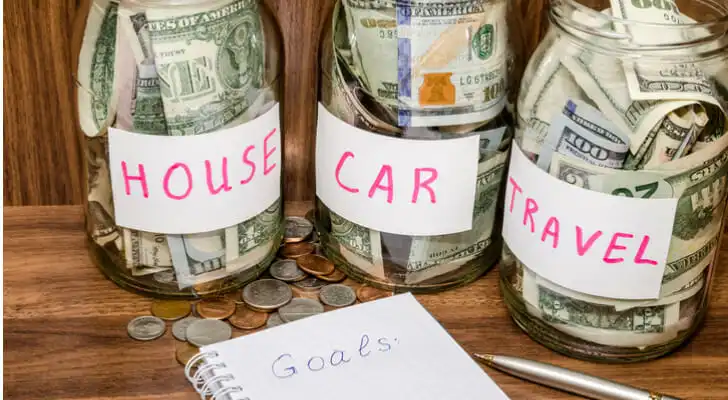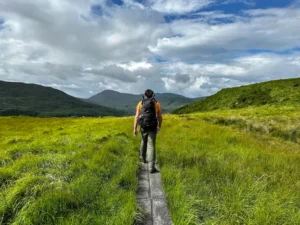Traveling the world alone can be one of the most transformative and rewarding experiences a person can undertake. The freedom to explore at your own pace, choose your own path, and embrace the unknown is unparalleled. Solo travel allows you to break free from your comfort zone, discover new perspectives, and forge a deeper connection with yourself and the world around you. However, as liberating as it may be, venturing into unfamiliar territories without a companion comes with its unique challenges—particularly when it comes to staying safe.
Safety is one of the top concerns for solo travelers, and rightly so. Being alone in a new place makes you more vulnerable to potential risks, from petty theft and scams to unforeseen emergencies. Without the safety net of a travel partner, you need to be your own guardian, relying on preparation, intuition, and awareness to navigate your journey securely. But don’t let these concerns deter you. With the right strategies and a proactive mindset, solo travel can be as safe as it is empowering.
This article offers expert advice on how to stay safe while traveling solo, whether you’re exploring bustling cities, remote villages, or serene wilderness. From practical tips like choosing secure accommodations and protecting your finances to situational awareness and emergency planning, these insights will equip you with the tools to travel confidently and make the most of your solo adventure. Safety doesn’t have to be an obstacle—it can be a stepping stone to greater freedom and fulfillment.
By prioritizing your well-being, you’ll not only minimize risks but also open the door to a richer travel experience, where you can immerse yourself fully in the journey without unnecessary worry. Let’s dive into the essential safety measures that every solo traveler should know, empowering you to embark on your next adventure with confidence and peace of mind.
1. Set a Travel Budget
A well-defined budget is the cornerstone of financial planning for any trip.
- Estimate Costs: Research the average costs of accommodations, meals, transportation, and activities at your destination.
- Factor in Extras: Account for unexpected expenses, such as tips, souvenirs, or emergency purchases.
- Daily Spending Limit: Break down your budget into daily spending limits to avoid overspending.
2. Save Strategically Before You Travel
Saving for your trip ensures you start your journey on a solid financial footing.
- Dedicated Savings Account: Open a travel-specific account to separate your savings from regular expenses.
- Automate Savings: Set up automatic transfers to your travel fund every month.
- Cut Non-Essential Costs: Reduce unnecessary expenses like dining out or subscription services to boost your savings.
3. Use Travel-Friendly Financial Tools
Carrying cash isn’t always practical, so it’s essential to use reliable financial tools.
- Travel Credit Cards: Choose a credit card with travel rewards, no foreign transaction fees, and robust fraud protection.
- Debit Cards with Low Fees: Look for debit cards that offer free or low-fee withdrawals abroad.
- Prepaid Travel Cards: These cards allow you to load money in multiple currencies and manage spending easily.
4. Research Currency Exchange Rates
Understanding exchange rates can save you money during your travels.
- Monitor Rates: Use apps or online platforms to track exchange rates and exchange money when rates are favorable.
- Avoid Airport Exchanges: Exchange currency at reputable banks or local exchange offices for better rates.
- Use Local ATMs: Withdrawing money in the local currency often provides a better rate than exchanging cash.
5. Purchase Travel Insurance
Travel insurance is a non-negotiable expense for responsible travelers.
- Medical Coverage: Ensure your policy covers emergencies, illnesses, and accidents.
- Trip Protection: Opt for policies that reimburse costs due to cancellations, delays, or lost luggage.
- Compare Providers: Shop around for the best coverage that fits your budget and travel plans.
6. Keep Track of Expenses
Tracking expenses during your trip helps you stay within budget.
- Use Apps: Download expense-tracking apps like Trail Wallet or Spendee to log your spending on the go.
- Save Receipts: Keep physical or digital copies of receipts for reference.
- Adjust Daily Spending: If you overspend one day, cut back on non-essential expenses the next to balance your budget.
7. Plan for Emergencies
Unexpected events can occur, so it’s crucial to have a financial safety net.
- Emergency Fund: Set aside extra money specifically for emergencies, separate from your travel budget.
- Backup Payment Options: Carry a secondary credit or debit card in case your primary card is lost or stolen.
- Access to Help: Know how to contact your bank or card issuer while abroad.
8. Choose Affordable Accommodation and Transportation
Smart choices in accommodation and transportation can save significant money.
- Accommodations: Compare prices on platforms like Booking.com or Airbnb. Consider hostels, homestays, or house-sitting for cost-effective options.
- Transportation: Research public transportation passes or use budget airlines and carpooling services to save on transit costs.
9. Take Advantage of Travel Rewards
Maximizing travel rewards can significantly reduce your overall expenses.
- Earn Points: Use credit cards with travel rewards programs to earn points on flights, hotels, and other purchases.
- Frequent Flyer Programs: Join airline loyalty programs to accumulate miles for future trips.
- Cashback Offers: Look for cards or platforms that offer cashback on travel-related expenses.
10. Be Mindful of Local Spending Habits
Different destinations have different spending norms.
- Tipping Etiquette: Research tipping practices to avoid overpaying or offending locals.
- Haggling: In many countries, bargaining is expected at markets or for services. Learn the local customs for negotiation.
- Cash vs. Card: Understand where cash is preferred and where credit cards are widely accepted.
11. Avoid Debt While Traveling
While it may be tempting to splurge, accumulating debt can dampen the joy of your travels.
- Spend Within Means: Stick to your budget and avoid impulsive purchases.
- Limit Credit Card Use: Use credit cards for planned expenses, not as an extension of your budget.
- Pay Off Balances: If you use a credit card, pay off the balance promptly to avoid interest charges.
12. Maximize Free and Low-Cost Activities
You don’t need to spend a fortune to enjoy your destination.
- Free Attractions: Research free museums, parks, and cultural events.
- Walking Tours: Many cities offer free walking tours led by local guides.
- Local Discounts: Look for discounts or passes for tourists that include multiple attractions at a reduced price.
13. Stay Vigilant About Fraud
Travelers are often targets for scams and theft.
- Protect Your Cards: Use RFID-blocking wallets to prevent electronic theft.
- Be Wary of Scams: Familiarize yourself with common travel scams in your destination.
- Check Bank Statements: Regularly monitor your accounts for unauthorized transactions.
14. Plan for Post-Travel Finances
Returning home with a financial plan ensures you transition smoothly after your trip.
- Settle Balances: Pay off any travel-related debts immediately.
- Evaluate Expenses: Review your trip spending to identify areas where you could save more next time.
- Rebuild Savings: Start saving again for your next adventure or other financial goals.
15. Stay Healthy While Traveling
Maintaining your health is a critical part of staying safe while traveling solo. Falling ill or experiencing physical discomfort can make you more vulnerable and detract from your experience.
- Stay Hydrated: Carry a refillable water bottle and ensure you drink enough water throughout the day, especially in warm climates.
- Eat Smart: Avoid consuming raw or undercooked foods, particularly in places where hygiene standards may differ from what you’re used to. Opt for freshly prepared meals from reputable vendors or restaurants.
- Pack Medications: Bring a basic first aid kit with pain relievers, antihistamines, and any prescription medications you need. Familiarize yourself with the nearest pharmacies at your destination in case of emergencies.
16. Trust Reputable Tour Operators
If you plan to explore areas that are unfamiliar, remote, or require local expertise, partnering with a reputable tour operator can enhance your safety and experience.
- Read Reviews: Check online reviews from other travelers on platforms like TripAdvisor or Google to ensure the operator has a good reputation.
- Verify Credentials: Confirm that the tour company is licensed and follows safety protocols.
- Group Tours for Solo Travelers: Joining group tours designed for solo travelers can provide a sense of security and opportunities to meet like-minded people.
17. Stay Informed About Local Events and News
Awareness of current events and local situations is crucial for solo travelers.
- Monitor News: Stay updated on any political unrest, strikes, or natural disasters that might impact your safety. Use news apps or follow reliable sources online.
- Sign Up for Alerts: Enroll in your country’s travel alert program, such as the U.S. State Department’s Smart Traveler Enrollment Program (STEP), to receive updates about your destination.
- Avoid Crowds: Large gatherings or protests can escalate quickly. While they might seem intriguing, it’s best to keep your distance for safety.
Traveling the world is one of life’s most enriching experiences, offering opportunities to explore new cultures, meet people from diverse backgrounds, and create unforgettable memories. However, without proper financial planning, the joy of travel can quickly be overshadowed by stress, debt, or unexpected expenses. By taking the time to prepare financially before and during your journey, you can ensure that your adventures remain enjoyable and free from financial worries.
A well-structured travel budget, smart savings strategies, and the use of travel-friendly financial tools lay the foundation for successful trips. By prioritizing essentials, tracking expenses, and staying vigilant about potential risks such as scams or overspending, you empower yourself to make the most of your journey without compromising your financial stability. Incorporating travel insurance, emergency funds, and a solid post-travel plan adds additional layers of security, allowing you to travel with confidence and peace of mind.
Moreover, financial discipline while traveling doesn’t mean sacrificing the richness of your experiences. Many of the world’s most memorable moments—strolling through vibrant local markets, hiking scenic trails, or joining community events—can be enjoyed without breaking the bank. Being mindful of local customs, finding free or low-cost activities, and maximizing travel rewards ensure you get the most value for your money while immersing yourself fully in the experience.
Ultimately, travel is about balance—balancing the excitement of new adventures with the responsibility of financial health. When you approach your trips with a thoughtful financial plan, you not only safeguard your current journey but also set yourself up for future explorations. With every step, every destination, and every experience, you’ll carry the peace of knowing you’ve planned wisely, ensuring your travel dreams remain within reach for years to come. So go ahead—pack your bags, embark on your adventure, and let the world become your classroom, playground, and source of inspiration, all while staying financially secure. Safe travels!




